History also shows that the majority of elite golfers who undertake major swing changes when they get to the tour rarely play better, and usually never recover to reclaim their original standard. It is quite likely that you are reading this article because you want to become a professional tour golfer, and right now you are in high school or college and you spend a lot of your available time practicing and playing looking for ways to play better sooner so you can achieve your goal. 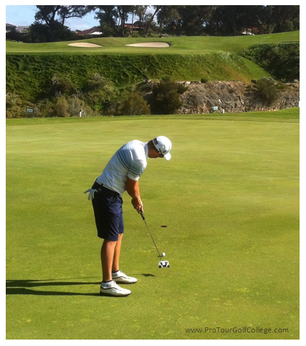 We Will Get You on the Right Path Well, in this article we will clear up some of the confusion for you and set you on the right path to learn how to travel safely and get your chance to earn a tour card and compete successfully on a professional golf tour. Firstly we will assume that you are already a very competent golfer. This means that you already can and do score in the low 70’s, and possibly even the high 60’s in tournaments. If you are not at this standard yet, this article will still be extremely helpful for you. Our goal in this article is to share with you the first of 4 Golf Success Factors that we have found to be vitally important for you to achieve your goal of becoming a successful professional golfer. The reason we can do this is because we work with ambitious amateur and professional golfers at Pro Tour Golf College virtually every day, and we spend a lot more time working with these golfers than most golf instructors would spend in a year working with their best students because our program affords us the opportunity to work with our students for 25 to 30 hours each week over 10 week periods. You watch a lot of the pro tournaments on TV or on your computer, and you see young male golfers like Jordan Spieth and female golfers like Lexi Thompson on the leader board at big tournaments, and you wonder what it will take for you to be that golfer. But are you confused? You might be a little confused because of all the conflicting information on the internet and TV about what it takes to become a successful golfer. And who could blame you, after all one golf expert will say this, and another will say that, and the TV commentators will say something else. So you probably scratch your head wondering how you will be able to sort out what you need to know, so that you don’t waste your valuable time working on things that won’t help you. So where do you start? What do you need to know to become a successful professional tour golfer? When you spend 250 to 300 hours per semester working with elite amateur and professional golfers, you tend to notice the dynamics that help them to make progress, and conversely you also notice the dynamics that hinder their progress. The 4 Golf Success Factors Over the next four weeks, we will share the 4 Golf Success Factors which will help you to continuously improve your goal score. What we propose is to distill down all the possible factors to the most important ones that we have discovered help young golfers make faster progress. 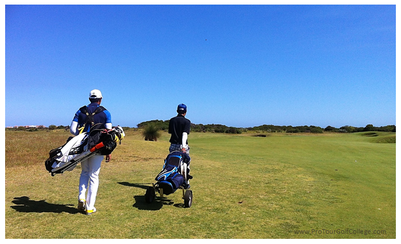 Treat Casual Rounds Like Tournament Rounds Treat Casual Rounds Like Tournament Rounds Confidence When it Counts is Key Many elite golfers can produce excellent scores when playing with their friends in familiar environments like playing their home course, but the same golfer in an important tournament will often crumble like a deck of cards. So the number one Golf Success Factor is The Golf Confidence Factor, your strong belief in yourself and your ability to play to the best of your ability when it counts. This factor truly determines how far you will go in the game of golf and every great golfer in history has displayed The Golf Confidence Factor. WARNING!! So what in our experience is the number one biggest destroyer of your golf confidence? Making major swing changes after the age of 20 years old. That’s right, if you want to get to the tour sooner than later, and you have played competitive golf for 5 or more years, and you have achieved a high level of competence in your ball striking, we have found that undertaking complex golf swing changes (where you tamper with the fine motor controls you have developed over your career) will do more harm than good to your golf confidence. You simply have to understand that as you get older you must be very careful with any swing change work you wish to perform with your golf instructor. By the time you become a tour golfer it is almost impossible to find the time to perform the type of swing change work that you have read Tiger Woods makes. Tiger had the time, resources, record and money to fully commit himself to the task and this puts him in a different situation to most golfers. History also shows that the majority of elite golfers who undertake major swing changes when they get to the tour rarely play better, and usually never recover to reclaim their original standard. Have a good look at our Golf Swing Change Model below to understand the implications of making complex swing changes at the wrong time in your development cycle. 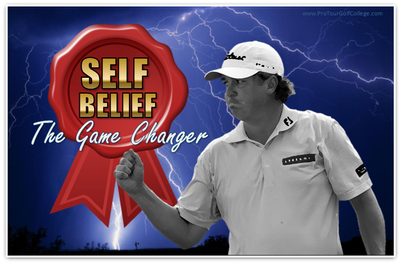 Every Golfer Displays Self-Confidence Their Way Every Golfer Displays Self-Confidence Their Way 1. The Golf Confidence Factor - Authentic Self-Belief and Confidence A few years ago a comprehensive survey of players and caddies was conducted on the European Tour by Genworth, a Lifestyle Protection and Mortgage Insurance Company who have sponsored ‘Statistics’ on the European Tour since 2007. Now what was interesting when we read this report was the response to the question “what is vital for success?” and the answer given by the 41 European Tour professionals who responded to the survey. 74 percent of these excellent golfers rated Self Belief as the most important attribute for success, which was closely followed by Mental Frame of Mind at 53 percent. Think about it, of all the factors that influence success, they recognized that self-belief was the most important attribute, followed closely by Mental Frame of Mind, and we completely agree. What is Self-Belief? But what is self-belief? When I looked up the definition of self-belief in the Collins English Dictionary it was defined as; “confidence in oneself and one’s ability.” That's sounds about right doesn't it? Self-confidence as it relates to your golf development describes the amount of certainty you have in your ability to perform your golf skills under pressure, and to also critically evaluate situations and make effective decisions. It also describes your self-worth, or the level of respect you have for yourself and your abilities. The reason these European Tour players rated Self Belief so highly is because they know that you can have all the ability and skill in the world, but it means nothing if you lack the confidence to follow through, that you don’t believe you can perform those skills when it matters most. Over the years we have seen many excellent golfers who had all the tools except enough belief in themselves, which is sad because we never got to see them live their dream and become a successful tournament golfer.  The Golden Scoring Standard You see the idea is for you to get your shot-making ability over a season to tour average in tournaments long before you go to tour school.
The 2 years leading into tour school should by devoted to playing lots of tournaments, gaining valuable tournament experience and working on all your scoring skills within 100 yards of the flag. Always remember that your success on tour will always be subject to your ability to score consistently in the low 70’s over a season. This is your most important consideration when developing your golf skills and ability. You build your golf confidence by working on your mental strategies, golf skills, and your golf score to improve your competitive ability. Your aim should be to move your game towards The Golden Scoring Standard of 70, and literally everything you do in the 2 years prior to attending tour school should be aimed at nothing else. The closer you get to 70 in tournaments the more success you will experience. 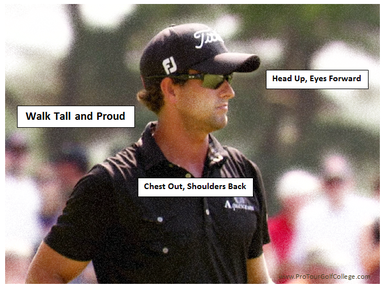 The Pro Tour Posture Performance Principles The Pro Tour Posture Performance Principles The following 5 Golf Confidence Strategies will help you to build authentic self-belief and confidence in yourself and your game. 1. Don't Trash Talk Your Game When you finish a round of golf only discuss the strategies that would have improved your score for that day. Do not provide golfers (or anyone else) with a postmortem of all the bad shots you played. Refrain from commenting negatively about your game. No one wants to hear about your bad shots and unlucky bounces. Build the habit of talking only about the good shots you played, and the strategies that would use to produce a better score for the day. 2. Walk Tall and Proud like the Champion Your Are Push your chest out, raise your eye line so you are looking way down the fairway, and not at your feet, avoid slouching, and walk briskly and without delay. Walk as if you were 6 inches taller with a neck brace on. If you are not playing your best it is even more important that you do this. Build the tall and brisk habit into your walk and you will see your world differently, and you will play differently as well. Have a look at Adam Scott and his tournament posture. Notice carefully the way he walks and plays. Jordan Spieth modeled himself on Adam Scott when he was still in high school and you can see the similarities when you watch him play. 3. Dress Like a Tour Star Iron your clothes, polish your shoes and wear clothes that make you feel better about yourself. The image you portray not only sends out positive messages to others, but it will make you feel good about yourself. A good rule of thumb is to "spend twice as much to buy half as much." Buy quality clothing that lasts longer, quality clothing keeps its color and wear-ability. Pay a little more upfront, and you will get a lot more for your investment in the long run. 4. Be Prepared to Play Makesure that you are prepared to play properly before every round of golf, and even when you go to practice. Get to the golf course at least 90 minutes before you tee-off mentally and physically prepare yourself for the day. Good preparation increases your confidence because you give yourself the time needed to stretch, go over your course notes and hit warm up shots and putt before you play. By giving yourself the time to get ready to play, you will reduce some of the normal anxiety you experience prior to hitting your first shot. This reduction in anxiety can make the early difference to your round to help you build momentum to give you your best chance to play your best. 5. Play Golf with an Attitude of Gratitude Lastly be thankful for all that you have achieved from golf, and be complimentary of others and their efforts to get better. Be above the small mindedness and pettiness of others by not joining in their conversation. You will gain little from hanging around golfers who only want to talk negatively about them-self and others . You are training to become a world class golfer, and you should start acting like one now. Great golfers have a presence about them, a rock-solid inner confidence and belief in their ability, and they know that they have the strategies and skills to handle the normal adversity associated with the game, and also rise to the occasion when they need to. Work hard on your self-belief and confidence, and practice the 5 Golf Confidence Strategies everyday, and you will be well on your way to becoming the confident and capable professional golfer you wish to become. See you next week for part 2. Lawrie Montague and David Milne - Pro Tour Golf College Your Success On Tour is Our Business Comments are closed.
|
Archives
June 2019
|
Proudly Supported By
Copyright © 2011 - 2018 Pro Tour Golf College
Website Managed By Golf Performance Media
All Rights Reserved
Website Managed By Golf Performance Media
All Rights Reserved

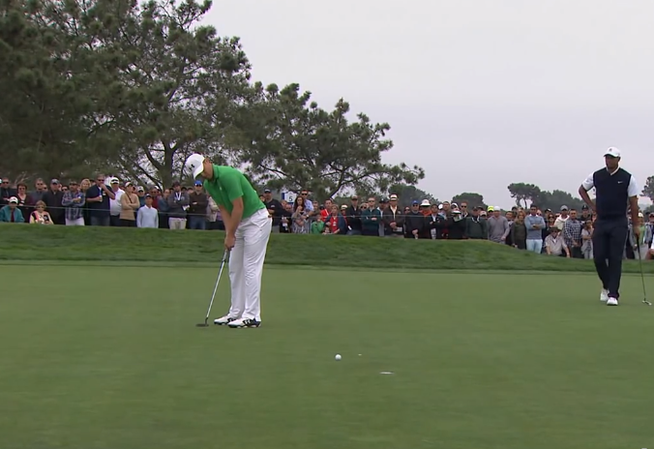
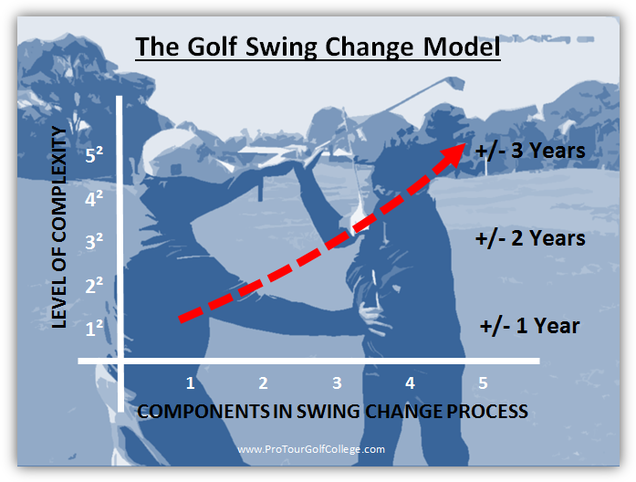


 RSS Feed
RSS Feed



